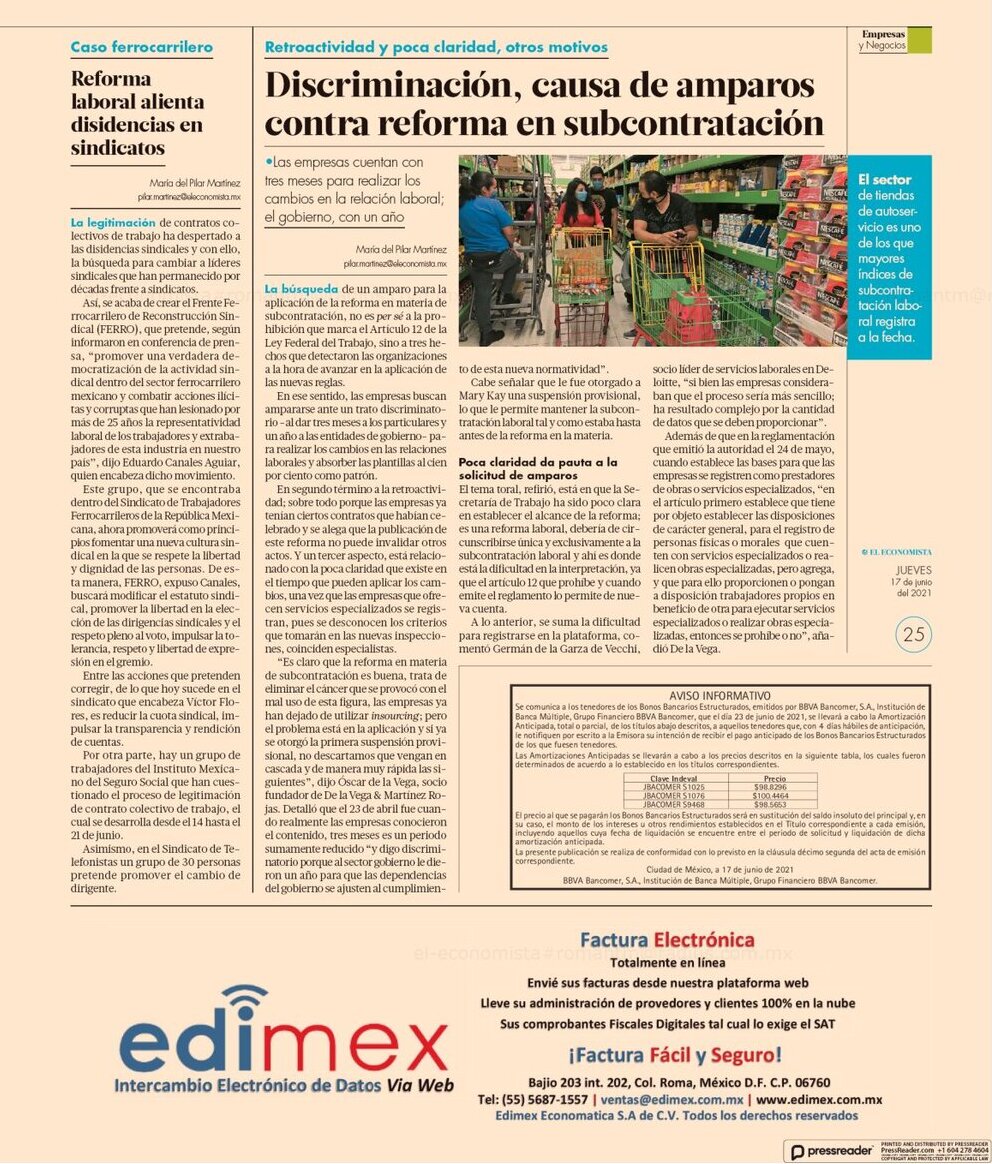Note published on June 17 in El Economista, Empresas [Companies] Section by María del Pilar Martínez.
Read original source
Companies have three months to make changes in the labor relationship; the government has one year.

The protection under writs of amparo being sought in face of the application of the reform on subcontracting matters is not, per se, against the prohibition established in Article 12 of the Federal Labor Law, but against three facts detected by organizations while progressing in the application of the new rules.
In this sense, companies are seeking protection under writs of amparo in face of a discriminatory treatment – that of giving the private sector three months and government entities one year – to conduct changes in labor relationships and absorbing one hundred percent of the workforce as their employer.
The second aspect is in regard to retroactivity, particularly because companies already had certain contracts they had entered into and it is argued that the publication of this reform cannot invalidate other acts, And a third aspect is related to the lack of clarity on the timings in which the changes can be implemented, once companies offering specialized services have registered, because the criteria to be used in the new inspections are not known, specialists agree.
“It is clear that the reform on subcontracting matters is good, it seeks to eliminate the cancer that was caused due to the misuse of this mode, companies have already stopped using insourcing; the problem, however, lies in its application and, if the first provisional stay has already been granted, we do not rule out that the next ones will follow very quickly, in a cascade”, said Óscar de la Vega, founding partner of De la Vega & Martínez Rojas. He explained that April 23 was the date in which companies were actually informed of the contents; three months is an extremely short period of time “and I say discriminatory because the government sector was granted one year for government agencies to adjust to compliance with the new regulations”.
It should be noted that Mary Kay was granted a provisional stay, which allows this company to continue with labor subcontracting just as it was conducted before the reform on this matter.
Lack of clarity opens the door to the filing of amparo suits
The main issue, he said, is that the Department of Labor has not been clear in establishing the scope of the reform; it is a labor reform, it should be limited solely and exclusively to labor subcontracting and there lies the difficulty in its interpretation, in Article 12 it prohibits it and, when it issues the regulation, it allows it once again .
Added to the above, we have the difficulty in registering at the platform, said Germán de la Garza de Vecchi, leading partner of Labor Services at Deloitte, “although companies had believed that the process would be simpler, it has turned out to be complex due to the amount of information that must be provided.”
Additionally, in the regulations issued by the authority on May 24, when it establishes the bases for companies to register as providers of specialized works or services, “the article first establishes that it has the objective of establishing the general provisions for the registration of natural persons or legal entities that provide specialized services or conduct specialized works, but it adds, that to this end they provide their own workers or place them at the service of another, for the benefit of the latter, to perform specialized services or carry out specialized works; then, is it prohibited or not”, added De la Vega.






